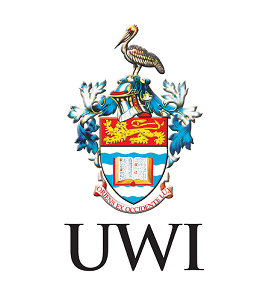
The University of the West Indies’ leading expert on national security and economic development, Professor Anthony Clayton, gave a keynote expert assessment to the United Nations Secretary-General's Advisory Board on Disarmament Matters (ABDM) at the UN Headquarters in New York - hosted from June 28–30, 2022.
The UN Secretary-General's Advisory Board on Disarmament Matters was established in 1978 by the UN General Assembly to advise the Secretary-General on international security, arms limitation and disarmament. Its fifteen (15) high-level members are directly appointed by the Secretary-General.
According to Prof. Clayton, this meeting was of the greatest global importance and the work of the Board has never been more urgent – or more difficult. Global military expenditure, he said, is soaring as a result of Russia’s invasion of Ukraine.
“It is now over US$2 trillion, and further increases are already ‘baked in’ with military production being stepped up and new weapons systems in development. Russia’s recent announcement of the RS-28 ‘Satan II’ hypersonic missile has also unlocked a new nuclear arms race, with all the nuclear weapons states now planning to increase and upgrade their arsenals,” Prof Clayton said.
“It appears increasingly likely that the post-Cold War era of relative peace, prosperity, with the opening of markets and the spread of democracy, is now ending, and that many of these gains could be reversed as the world divides again into armed camps,” he added.
Professor Clayton examined the likely future causes of conflict, including ideology and religion, but with a particular focus on non-traditional threats such as climate change, the risk of ecosystem collapse, pandemics, water or food shortages, the forced migration of millions of people from areas devastated by climate change, and large-scale transnational crime, corruption and tax evasion. He explained that “these non-traditional security threats had key characteristics; they had large-scale transnational impacts on human security, they undermined state stability and increased the risk of conflict and violence, and they were all highly complex or ‘wicked’ problems that could not be solved by any one country alone.”
Speaking at the meeting, Professor Clayton said, "Decarbonizing the world economy could cost as much as $50 trillion - but failure to do so could create a global security threat on an unprecedented scale as our economies collapse. It is imperative to find the resources that we need to rebuild our energy systems." He also pointed out that the key to progress was to remove the subsidies for fossil fuels, estimated at nearly $6 trillion per year.
Referencing the latest IPCC report, Prof Clayton pointed out that it is now almost inevitable that the world will soon go over 1.5C warming, and will go over 3C, with catastrophic consequences, unless we take rapid and effective action.
The impacts of climate change (according to the IPCC report), he continued, “will be unevenly distributed; in the mid-latitudes the hottest days will be up to 3°C hotter if the world average rises by 1.5°C and up to 4°C hotter if the world average rises by 2°C, which would make some parts of the world uninhabitable.
“By 2050 there could be over 140 million people forced to migrate from areas that will then be too hot, arid or flooded to support life, which could result in civil unrest, war and terrorism as land and resources become more scarce.”
Following the meeting, Prof. Clayton shared that after his presentation the Board is now considering expanding its remit to include non-traditional threats and will also consider new strategies for peace and sustainable development that include decarbonization and energy, food and water security.

